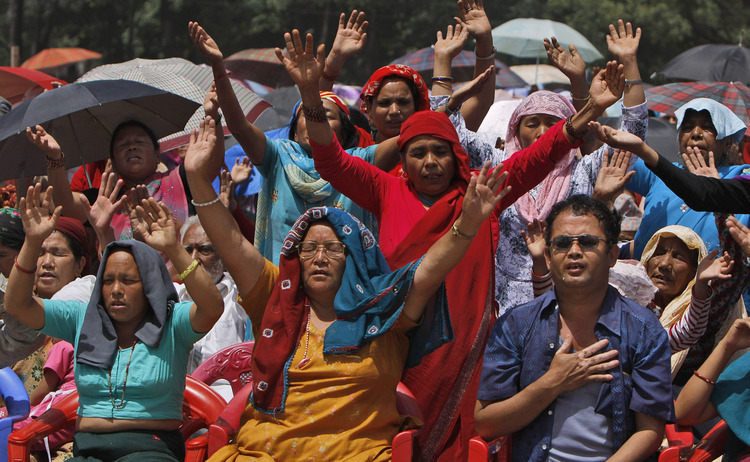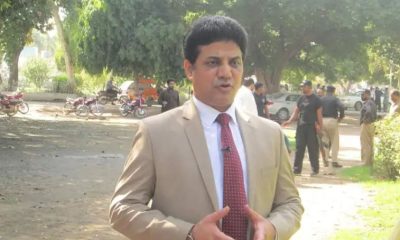world news
UAE, US intercept Houthi missile attack targeting Abu Dhabi
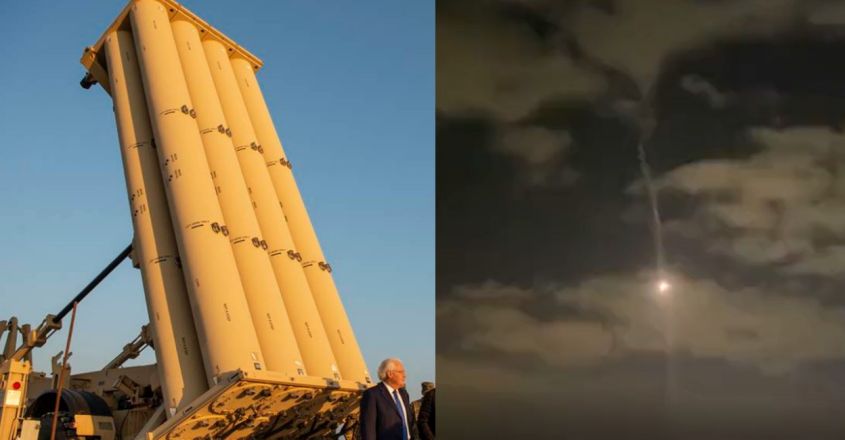
UAE- The United Arab Emirates and the U.S. military intercepted two ballistic missiles fired by Yemen’s Houthi rebels over the skies of Abu Dhabi early Monday, authorities said, the second attack in a week that targeted the Emirati capital.
The missile fire further escalates tensions across the Persian Gulf, which previously had seen a series of assaults near — but never indisputably on — Emirati soil. It comes during Yemen’s yearslong war and the collapse of Iran’s nuclear deal with world powers. The 2,000 American troops at Al-Dhafra Air Base in the capital took shelter in bunkers during the attack and launched Patriot missiles, a rare return of fire.
The attacks threaten the business-friendly, tourism-focused efforts of the Emirates, a federation of seven sheikhdoms on the Arabian Peninsula also home to Dubai. For years, the country has marketed itself as a safe corner of an otherwise-dangerous neighborhood.
Videos on social media showed the sky over Abu Dhabi light up before dawn Monday, with what appeared to be interceptor missiles racing into the clouds to target the incoming fire. Two explosions later thundered through the city. The videos corresponded to known features of Abu Dhabi.
The state-run WAM news agency said that missile fragments fell harmlessly over Abu Dhabi.
The Emirates is “ready to deal with any threats and … it takes all necessary measures to protect the state from all attacks,” WAM quoted the UAE Defense Ministry as saying.
Navy Capt. Bill Urban, a spokesperson for U.S. Central Command, in a statement acknowledged the assistance of American Patriot missile batteries prevented the Houthi missiles from striking targets in Abu Dhabi. Videos on social media suggested outgoing interceptor fire came from the base.
“The combined efforts successfully prevented both missiles from impacting the base,” Urban said.
The missile fire disrupted traffic into Abu Dhabi International Airport, home to the long-haul carrier Etihad, for about an hour after the attack.
Houthi military spokesman Yehia Sarei claimed the attack in a televised statement, saying the rebels targeted several sites in the UAE with both Zulfiqar ballistic missiles and drones, including Al-Dhafra Air Base. He warned the UAE would continue to be a target “as long as attacks on the Yemeni people continue.”
“We warn foreign companies and investors to leave the Emirates!” Sarei shouted from a podium. “This has become an unsafe country!”
The Dubai Financial Market closed down nearly 2% after the attack, with nearly every company trading down. The Abu Dhabi Securities Exchange also fell slightly.
At Al-Dhafra, which hosts both American and British forces, U.S. troops took shelter in bunkers during the attack, the U.S. Air Force’s Mideast command said. Al-Dhafra is home to the 380th Air Expeditionary Wing and has seen armed drones and F-35 stealth fighters stationed there.
The U.S. Embassy in Abu Dhabi later issued a security alert to Americans living in the UAE, warning citizens to “maintain a high level of security awareness.” The alert included instructions on how to cope with missile attacks, something unheard of previously in the UAE, a tourist destination home to skyscraper-studded Dubai and its long-haul carrier Emirates.
“If these types of attacks end up occurring on a weekly basis as they do in the Saudi Arabia … that will shift the perception of the threat landscape in the UAE,” said Torbjorn Soltvedt, an analyst with risk consultancy Verisk Maplecroft. “The concern is now the contagion is going to be broader if we start to see attacks against civilian infrastructure.”
U.S. National Security Adviser Jake Sullivan met with both the Emirati and Saudi ambassadors Monday to discuss the recent Houthi attacks and “joint efforts to hold the Houthis accountable,” the White House said. He also “underscored the importance of all parties to the conflict abiding by their obligations under international humanitarian law.”
The Emirati Defense Ministry later tweeted out a black-and-white video that it said showed an F-16 striking the ballistic missile launcher used in the Abu Dhabi attack. The Defense Ministry identified the site as being in Yemen’s al-Jawf province. A satellite image from Planet Labs PBC analyzed by The Associated Press early Tuesday confirmed the strike took place near the city of al-Hazm, around 1,350 kilometers (840 miles) southwest of Abu Dhabi.
The state-linked newspaper The National in Abu Dhabi identified the F-16 as Emirati, raising the question of how directly involved the UAE now is in the fighting after withdrawing most of its ground forces in 2019. The Emiratis continue to back militias on the ground, including the Giants Brigade, which has made advances against the Houthis in recent weeks.
The Zulfiqar ballistic missile, believed to have a range of 1,500 kilometers (930 miles), is modeled after the Iranian Qiam missile, according to a report by the International Institute for Strategic Studies. Iran denies directly arming the Houthis, though United Nations experts, Western nations and analysts have linked weapons in the rebels’ arsenal back to Tehran.
“It’s got the classic elements of the coercive strategy,” said Tim Wright, a research analyst at IISS. “In this case, it’s to make them back down on their support” of the Giants Brigade.
The attack came a week after Yemen’s Houthi rebels claimed an attack on the Emirati capital targeting the airport and an Abu Dhabi National Oil Co. fuel depot in the Mussafah neighborhood with drones and cruise missiles. That attack on the fuel depot killed three people and wounded six others.
New, high-resolution satellite photographs obtained by the AP from Planet Labs showed repair work still ongoing at the fuel depot Saturday. Emirati officials have not released images of the attacked sites, nor allowed journalists to see them.
In recent days, a Saudi-led coalition that the UAE backs unleashed punishing airstrikes targeting Yemen, knocking the Arab world’s poorest country off the internet for days and killing over 80 people at a detention center. The internet came back on in Yemen early Tuesday, according to data from advocacy group NetBlocks and the internet firm Cloudflare.
The Houthis had threaten to take revenge against the Emirates and Saudi Arabia over those attacks. On Sunday, the Saudi-led coalition said a Houthi-launched ballistic missile landed in an industrial area in Jizan, Saudi Arabia. The missile tore a deep crater in the ground, television footage showed, and slightly wounded two foreigners of Bangladeshi and Sudanese nationality.
The hard-line Iranian daily newspaper Kayhan, whose editor-in-chief was appointed by Supreme Leader Ayatollah Ali Khamenei, just Sunday published a front-page article quoting Houthi officials that the UAE would be attacked again with a headline: “Evacuate Emirati commercial towers.”
The newspaper in 2017 had faced a two-day publication ban after it ran a headline saying Dubai was the “next target” for the Houthis.
http://theendtimeradio.com
world news
പാക്കിസ്ഥാനിലെ പഞ്ചാബ് പ്രവിശ്യയിലെ മന്ത്രി സ്ഥാനത്തേക്ക് ക്രൈസ്തവ വിശ്വാസി
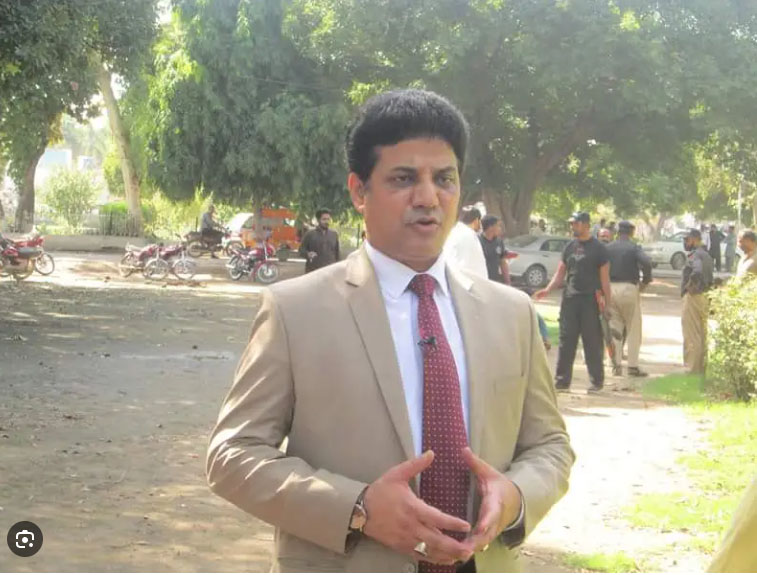
ലാഹോർ: പാക്കിസ്ഥാനിലെ പഞ്ചാബ് പ്രവിശ്യയിലെ മനുഷ്യാവകാശ മന്ത്രി സ്ഥാനത്തേക്ക് ക്രൈസ്തവ വിശ്വാസിയായ ഖലീൽ താഹിർ സിന്ധു തെരഞ്ഞെടുക്കപ്പെട്ടു. പ്രദേശത്തെ ക്രൈസ്തവര്ക്ക് വലിയ പ്രതീക്ഷ പകര്ന്നുക്കൊണ്ടാണ് കത്തോലിക്ക വിശ്വാസിയും അഭിഭാഷകനുമായ ഖലീൽ താഹിർ തെരഞ്ഞെടുക്കപ്പെട്ടിരിക്കുന്നത്. പാക്ക് മന്ത്രിസഭയില് സാധാരണയായി ക്രൈസ്തവര് തെരഞ്ഞെടുക്കപ്പെടുന്നത് വിരളമായ സംഭവമാണ്. വർഷങ്ങളായി സജീവമായ രാഷ്ട്രീയ ഇടപെടലുമായി രംഗത്തുള്ള പാക്കിസ്ഥാൻ മുസ്ലീം ലീഗ്-നവാസ് (പിഎംഎൽ-എൻ) ലിസ്റ്റിലെ ക്രിസ്ത്യൻ പ്രതിനിധിയും പാർലമെൻ്റ് തിരഞ്ഞെടുപ്പിൽ ന്യൂനപക്ഷ സീറ്റിലേക്കുള്ള സ്ഥാനാർത്ഥിയുമായിരിന്നു താഹിർ സിന്ധു.
സാംസ്കാരികമായും ധാർമ്മികമായും ആത്മീയമായും വിവിധ വിഷയങ്ങളില് അദ്ദേഹം പുലര്ത്തുന്ന ശക്തമായ നിലപാടുകള് ഇസ്ലാമിക ഗ്രൂപ്പുകൾ ഉൾപ്പെടെ പാർലമെൻ്റിലെ വിവിധ പാർട്ടികള് ബഹുമാനിക്കുന്നുണ്ട്. പഞ്ചാബ് പ്രവിശ്യാ ഗവൺമെൻ്റിൽ മനുഷ്യാവകാശ-ന്യൂനപക്ഷ പ്രവിശ്യാ മന്ത്രിയായും 2013-ൽ ആരോഗ്യ മന്ത്രിയായും അദ്ദേഹം സേവനം ചെയ്തിട്ടുണ്ട്. 57 വയസ്സുള്ള സിന്ധു, യഥാർത്ഥത്തിൽ ഫൈസലാബാദ് സ്വദേശിയാണ്. ക്രിസ്ത്യൻ ന്യൂനപക്ഷങ്ങളുടെ അവകാശങ്ങള്ക്കായി മുന്നില് നിന്നു പോരാടുന്ന വ്യക്തി കൂടിയാണ് താഹിർ സിന്ധു.
2013 ജൂലൈയിൽ മതനിന്ദ ആരോപിച്ച് അറസ്റ്റിലായ ക്രിസ്ത്യൻ ദമ്പതികളായ ഷഗുഫ്ത കൗസർ, ഷഫ്ഖത്ത് ഇമ്മാനുവൽ എന്നിവർക്ക് വേണ്ടി തുടര്ച്ചയായ നിയമ പോരാട്ടം നടത്തിയ സമിതിയിലെ അംഗമായിരുന്നു സിന്ധു. ആദ്യ ഘട്ടത്തിൽ വധശിക്ഷയ്ക്ക് വിധിക്കപ്പെട്ട അവരെ 2021-ൽ ലാഹോർ അപ്പീൽ കോടതി കുറ്റവിമുക്തരാക്കി. വധശിക്ഷയ്ക്ക് വിധിക്കപ്പെട്ട പാകിസ്ഥാൻ വനിത ആസിയ ബീബിയെ മോചിപ്പിക്കാൻ ഇടയാക്കിയ കുപ്രസിദ്ധമായ വിചാരണയിലും സിന്ധു പ്രത്യേക ഇടപെടല് നടത്തിയിട്ടുണ്ട്.
കടപ്പാട് :പ്രവാചക ശബ്ദം
world news
ഫ്രാൻസിസ് മാർപാപ്പയുടെ പൊതു സദസ്സിലേക്ക് ആയുധവുമായി പ്രവേശിക്കാൻ ശ്രമിച്ച ഒരാളെ അറസ്റ്റ് ചെയ്തു

ഫ്രാൻസിസ് പാപ്പയുടെ പൊതു സദസിൽ ആയുധങ്ങളുമായി കടന്നു കയറൻ ശ്രമിച്ച വ്യക്തിയെ ഇറ്റാലിയൻ പോലീസ് അറസ്റ്റ് ചെയ്തു. ന്യൂയോർക്കിലെ പിടികിട്ടാപ്പുള്ളികളിൽ ഒരാളായ മോയ്സെസ് തേജഡയെ ആണ് പോലീസ് അറസ്റ്റ് ചെയ്തത്.
ഏപ്രിൽ 10 – ന് വത്തിക്കാനിലെ സെൻ്റ് പീറ്റേഴ്സ് സ്ക്വയറിന് സമീപം മൂന്ന് കത്തികളുമായി ആണ് പോലീസ് അദ്ദേഹത്തെ അറസ്റ്റ് ചെയ്തത്. ഫ്രാൻസിസ് മാർപാപ്പയുടെ പൊതു സദസ്സിൽ എല്ലാ ബുധനാഴ്ചയും എന്നപോലെ ആയിരക്കണക്കിന് വിശ്വാസികൾ പങ്കെടുക്കുന്ന സെൻ്റ് പീറ്റേഴ്സ് സ്ക്വയറിൽ പ്രവേശിക്കാനാണ് 54-കാരൻ ഉദ്ദേശിച്ചത്.
20 സെൻ്റീമീറ്റർ നീളമുള്ള മൂന്ന് കത്തികൾ പോക്കറ്റിൽ കരുതിയിരുന്ന ഇയാളെ വിചിത്രമായ പെരുമാറ്റത്തിന്റെ പേരിൽ സംശയിക്കുകയും പരിശോധിക്കുകയും ചെയ്യുകയായിരുന്നു. അറസ്റ്റിന് ശേഷം റിയൽ എസ്റ്റേറ്റ് ഏജൻ്റുമാരെ തട്ടിക്കൊണ്ടുപോയി കൊള്ളയടിച്ച ശേഷം ഒളിവിൽപ്പോയ പ്രതിയെ ജയിലിലേക്ക് അയച്ചു.
Sources:azchavattomonline.com
world news
ഇന്തോനേഷ്യയിൽ തീതുപ്പി അഗ്നിപര്വതം: 800 പേരെ ഒഴിപ്പിച്ചു, സുനാമി മുന്നറിയിപ്പ്
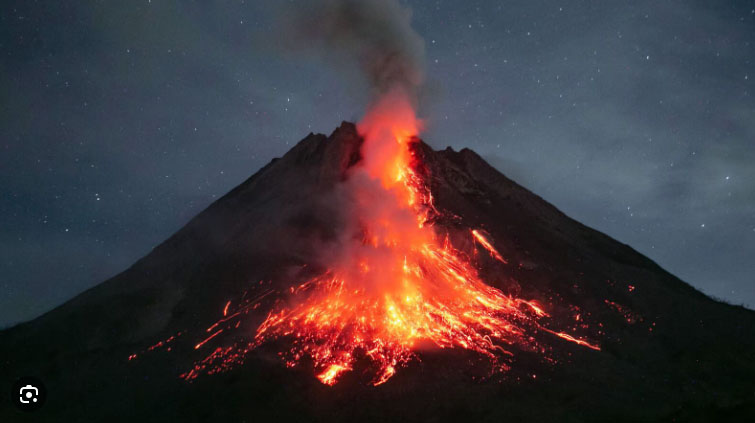
ഇന്തോനേഷ്യയിലെ റുവാങ് അഗ്നിപർവതം പാെട്ടിത്തെറിച്ചു: ഇതിനു പിന്നാലെ വടക്ക് സുലവേസി പ്രവിശ്യയില് നിന്ന് 800 പേരെ ഒഴിപ്പിച്ചു.
പ്രദേശത്ത് ജാഗ്രത നിർദ്ദേശവും സുനാമി മുന്നറിയിപ്പും നല്കിയിട്ടുണ്ട്. ലാവ പുറത്തേക്ക് ഒഴുകാൻ തുടങ്ങിയെന്നും അഗ്നി പർവതം മൂന്ന് തവണ പൊട്ടിത്തെറിച്ചെന്നും കാലാവസ്ഥ നിരീക്ഷണ കേന്ദ്രം അറിയിച്ചു.
സിത്താരോ ദ്വീപില് നിന്ന് 838 പേരെയാണ് ഒഴിപ്പിച്ചതെന്നാണ് വിവരം. പർവത ചരിവുകളിലൂടെ ലാവ ഒഴുകുന്ന വീഡിയോകളും പുറത്തുവന്നു. അഗ്നിപർവതം പൊട്ടിത്തെറിക്കുന്നതിന് മുൻപ് നിരവധി ഭൂകമ്ബങ്ങളും ഉണ്ടായതായി സൂചനകളുണ്ട്.
27 കോടി ജനങ്ങളുള്ള ദ്വീപസമൂഹമായ ഇന്തോനേഷ്യയിൽ 120 സജീവ അഗ്നിപർവ്വതങ്ങളുണ്ട്. 725 മീറ്റർ (2,378 അടി) യുള്ള റുവാങ് അഗ്നിപർവ്വതത്തിൽ നിന്ന് കുറഞ്ഞത് 6 കിലോമീറ്റർ (3.7 മൈൽ) അകലെ താമസിക്കാൻ അധികൃതർ വിനോദസഞ്ചാരികളോടും ജനങ്ങളോടും അഭ്യർത്ഥിച്ചു.
2018-ൽ, ഇന്തോനേഷ്യയിലെ അനക് ക്രാകറ്റൗ അഗ്നിപർവ്വതം പൊട്ടിത്തെറിച്ചതിനെത്തുടർന്ന്, സുമാത്ര, ജാവ തീരങ്ങളിൽ സുനാമിയുണ്ടായി 430 പേർ മരിക്കുകയും ചെയ്തിരുന്നു.
Sources:azchavattomonline.com
-

 us news10 months ago
us news10 months agoനോർത്ത് അമേരിക്കൻ പെന്തക്കോസ്തൽ റൈറ്റേഴ്സ് ഫോറം : രാജൻ ആര്യപ്പള്ളി പ്രസിഡന്റ്; നിബു വെള്ളവന്താനം സെക്രട്ടറി
-
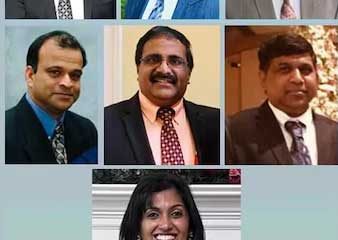
 us news8 months ago
us news8 months agoനോര്ത്ത് അമേരിക്കന് പെന്തക്കോസ്തല് റൈറ്റേഴ്സ് ഫോറം; അറ്റ്ലാന്റാ ചാപ്റ്ററിന് പുതിയ ഭാരവാഹികള്
-

 us news11 months ago
us news11 months ago‘The Biggest Water Baptism in History’: 4,166 Baptized at Historic Beach from Jesus Movement
-

 world news11 months ago
world news11 months agoMuslim Husband Found Out His Wife Became a Christian; He Beat Her, Starved Her and Left Her in a Wild Animal Park—But God…
-

 National8 months ago
National8 months agoബൈബിൾ വിതരണം ചെയ്യുന്നതും നല്ല മൂല്യങ്ങൾ പഠിപ്പിക്കുന്നതും മതപരിവർത്തനമല്ല: അലഹബാദ് ഹൈക്കോടതിയുടെ നിര്ണ്ണായക വിധി
-

 world news9 months ago
world news9 months ago37 Christians Killed in Nigeria in Three Weeks
-

 world news11 months ago
world news11 months agoലേലത്തിൽ വെച്ചിരുന്ന ലോകത്തിലെ ഏറ്റവും പഴക്കമുള്ള ഹീബ്രു ബൈബിളിന് റെക്കോര്ഡ് തുക: ലഭിച്ചത് 314 കോടിരൂപ
-
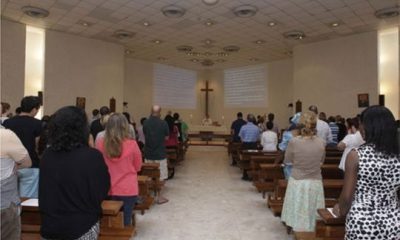
 world news11 months ago
world news11 months agoയുഎഇ യിൽ ക്രൈസ്തവ ആരാധനാലയങ്ങൾക്ക് ഇനി ലൈസൻസ് നിർബന്ധം


